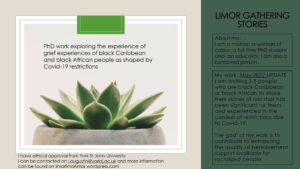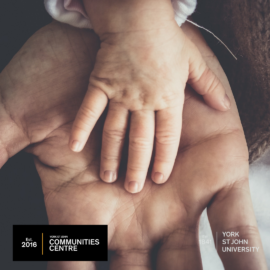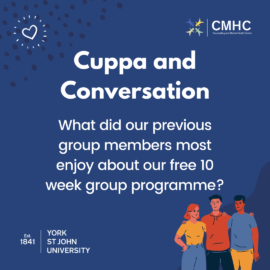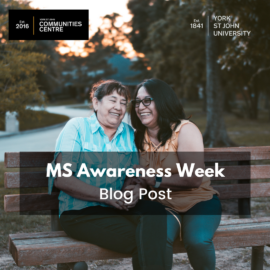I am Limor. I live and work in Yorkshire in the North of England. I’m a mother, a woman of colour, a full time PhD student and an educator. I am also a bereaved person; I have experienced loss before COVID and loss during lockdown and I recognise the impact that the pandemic and restrictions has had on bereaved people making sense of loss.
I started my PhD in 2021 and the focus of my research is on how COVID impacted grief has been experienced by people from black Caribbean and black African communities.
My research focuses on the experiences of black Caribbean and black African people because of the impact COVID has had on black communities who have had to deal with higher levels of losses in addition to existing inequalities and traumas.

WHY STORIES? As a bereaved person, I understand that some aspects of grief cannot be understood or quantified without time and space to experience, communicate and reflect. Because stories hold great significance for me personally and are valued by people from many black communities I have centred my PhD work around using stories to understand the experience of loss that has been impacted by COVID. Inviting someone to speak on their own terms and holding space to listen sets aside the idea that I should know what questions to ask or what there is to be learned from the experiences of bereaved people. When we tell stories we share our own understanding of the world and how it works, the lessons we have been taught and aspects of our cultures. Stories are rich and evoke emotions and memories and telling stories about our loved ones honours their memory and helps us understand our own experiences of losing them.
MISSION; I am committed to learning about and implementing decolonisation and anti-racism work in teaching and research and I am undergoing a personal process of learning and unlearning previous ideas about what research should be and how we can know and understand our own and others experiences. My work is designed to serve underrepresented communities and contribute to social justice outcomes. I understand that some individuals and groups have been over researched and had their time, labour and ideas appropriated and exploited by academic and research practices. I am working to avoid these practices. To listen, to adapt when needed and to use my time and resources positively and in service of communities that have been failed in the past.
SHARING YOUR STORY; I have been given ethical approval to begin gathering stories for my project.
I am currently looking for 3-5 people from black African or black Caribbean communities who; have experienced a loss that is significant to them – would be willing to talk to me on a couple of occasions about their experience and how they have made sense of their experience. We don’t fully understand yet how COVID has impacted grief and it is important that as we come to a better understanding of the experience of COVID impacted grief, that emerging stories are representative of the people who experienced grief in this way. Please get in touch with me if you have any questions or are interested in being involved with this work. I am happy to explain in more detail and there is no expectations on those who make contact.
CONNECTING FOR COMMON GOALS; I am actively building a network of peers who are doing decolonial work and research, are interested or invested in COVID grief research or just want to follow the progress of this project. Please get in touch if you would like to connect. I want to hear about your work and interests and appreciate your thoughts and reflections on mine. It is an ethical commitment for me to be open to and engage with reflexive practices and to listen to and address feedback from the communities my work aims to serve.
~
For more information on my research, it’s mission, and why your stories matter, or if you’re curious to take part in my study, please check out my website here: https://limorlimorlimor.wordpress.com/



